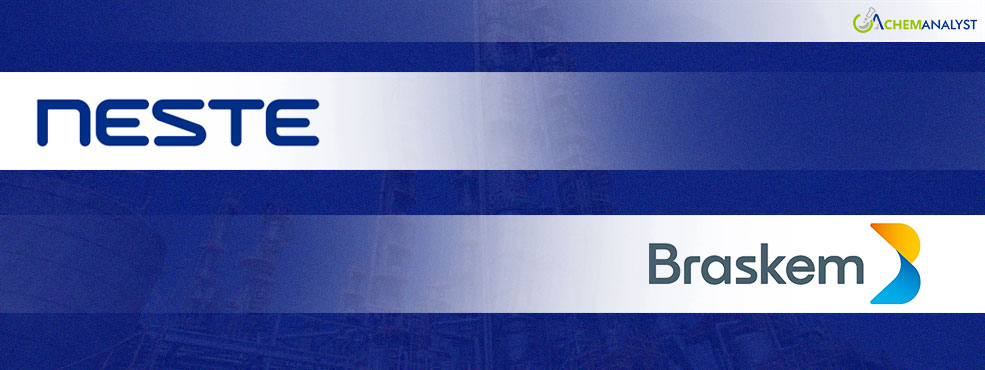Welcome To ChemAnalyst

Neste and Braskem, the leading producer of thermoplastic resins in the Americas, have formed an agreement to supply renewable and recycled feedstocks for the production of polymers and chemicals. Braskem will introduce products based on these feedstocks starting in the fourth quarter of 2024, targeting primarily the South American market under its Wenew product portfolio. Fabiana Quiroga, Director of Circular Economy at Braskem in South America, emphasized the importance of this collaboration, stating, “This partnership with Neste represents a significant milestone in our transition towards a circular economy. We’re offering a new solution that meets the industry’s stringent quality standards while ensuring sustainability from the very beginning of the value chain.”
The agreement involves Braskem using Neste RE™, a more sustainable feedstock from Neste, in the production of polymer resins and chemicals. Neste RE™ includes chemically recycled feedstock derived from plastic waste, as well as renewable feedstock produced from raw materials such as used cooking oil (UCO). Jeroen Verhoeven, Commercial Director for Polymers and Chemicals at Neste, expressed enthusiasm for the partnership, saying, “We are excited to collaborate with Braskem to advance the plastics and chemicals industry towards more sustainable solutions. By integrating our Neste RE solution into the South American market, we can reduce reliance on virgin fossil feedstock in polymer and chemical production.”
The feedstocks will be integrated into Braskem’s processes using a mass balance approach, certified by ISCC PLUS (International Sustainability and Carbon Certification), ensuring a traceable chain of custody and sustainable sourcing. By combining chemically recycled and renewable solutions, Braskem aims to reduce the use of virgin fossil feedstock and promote sustainability across the value chain.
Chemical recycling is particularly valuable for handling plastic waste that is otherwise difficult to recycle, such as multi-material or colored plastics. Neste’s chemically recycled feedstock helps increase recycling efforts, reducing the amount of plastic waste that could end up in the environment. Additionally, Neste’s renewable feedstock, made from waste and residue oils and fats, can significantly reduce greenhouse gas (GHG) emissions by replacing fossil-based materials in plastic and chemical manufacturing.
These advanced feedstocks are also suitable for sensitive applications, including food-contact packaging, marking a significant advancement for the market. Brazil’s Health Regulatory Agency (ANVISA) recognizes chemical recycling processes that produce high-purity monomers indistinguishable from fossil-based ones, allowing them to be used in food-contact packaging without the need for specific authorization. This partnership signifies a major step forward for sustainable plastics production.
We use cookies to deliver the best possible experience on our website. To learn more, visit our Privacy Policy. By continuing to use this site or by closing this box, you consent to our use of cookies. More info.
